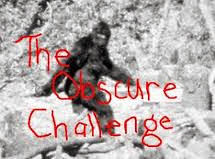
#96
Title: The Autobiography of Upton Sinclair
Genre: Biography
Challenges: 100+, 101 Books in 1001 days, Book a Week, Fall into Reading, Obscure, Book Around the States
Rating: B
No. of pages: 350
Published: 1963
Date read: 9/26/08 - 12/8/08
This book may be obscure and the person writing it may have faded a bit from the scene yet his works live on and the impression he has made on the world is indelible. From The Jungle which dealt with the meat-packing operation of the early 1900s to Flivver King about the car industry of the 1930s, Upton Sinclair has become involved with and advised presidents and industry of the atrocities of our times. A prolific writer, Mr. Sinclair thoroughly researched his subjects whether it was politics, art, economics or society.
His accomplishments are endless. Among them are:
1. Through his research and book The Jungle he helped to clean up the meat industry. He met with President Theodore Roosevelt and reported the results of the investigations which followed. Laws were passed and enforced and affected the way meat comes to our tables.
2. In writing The Brass Check he helped bring about improvement in the newspaper industry, encouraging newspapermen to form a union thereby improving the quality of newspapers.
3. Together with his wife they were instrumental in helping promote an interest in the investigation of psychic phenomena which led to the establishment of the department of parapsychology at Duke University.
4. An end to the oppression of labor in California came about as a result of his skills in helping to organize the American Civil Liberties Union in New York and southern California.
5. He campaigned to end poverty in California (EPIC) which changed the whole reactionary tone of the state.
6. As a result of the effect he had on communism in Japan, students turned away from their communist leadership and chose the democratic process and friendship of America.
7. He began the Intercollegiate Socialist Society, now (as of 1963) the League of Industrial Democracy which had students educating the educators.
Besides his autobiography the only other books of his I’ve read are The Jungle and Dragon’s Teeth, the latter of which won the Pulitzer Prize for Fiction in 1943. Sinclair’s writing is straight forward and easy to read. And I can say unequivocally that anything he’s written is worth reading.
Title: The Autobiography of Upton Sinclair
Genre: Biography
Challenges: 100+, 101 Books in 1001 days, Book a Week, Fall into Reading, Obscure, Book Around the States
Rating: B
No. of pages: 350
Published: 1963
Date read: 9/26/08 - 12/8/08
This book may be obscure and the person writing it may have faded a bit from the scene yet his works live on and the impression he has made on the world is indelible. From The Jungle which dealt with the meat-packing operation of the early 1900s to Flivver King about the car industry of the 1930s, Upton Sinclair has become involved with and advised presidents and industry of the atrocities of our times. A prolific writer, Mr. Sinclair thoroughly researched his subjects whether it was politics, art, economics or society.
His accomplishments are endless. Among them are:
1. Through his research and book The Jungle he helped to clean up the meat industry. He met with President Theodore Roosevelt and reported the results of the investigations which followed. Laws were passed and enforced and affected the way meat comes to our tables.
2. In writing The Brass Check he helped bring about improvement in the newspaper industry, encouraging newspapermen to form a union thereby improving the quality of newspapers.
3. Together with his wife they were instrumental in helping promote an interest in the investigation of psychic phenomena which led to the establishment of the department of parapsychology at Duke University.
4. An end to the oppression of labor in California came about as a result of his skills in helping to organize the American Civil Liberties Union in New York and southern California.
5. He campaigned to end poverty in California (EPIC) which changed the whole reactionary tone of the state.
6. As a result of the effect he had on communism in Japan, students turned away from their communist leadership and chose the democratic process and friendship of America.
7. He began the Intercollegiate Socialist Society, now (as of 1963) the League of Industrial Democracy which had students educating the educators.
Besides his autobiography the only other books of his I’ve read are The Jungle and Dragon’s Teeth, the latter of which won the Pulitzer Prize for Fiction in 1943. Sinclair’s writing is straight forward and easy to read. And I can say unequivocally that anything he’s written is worth reading.




